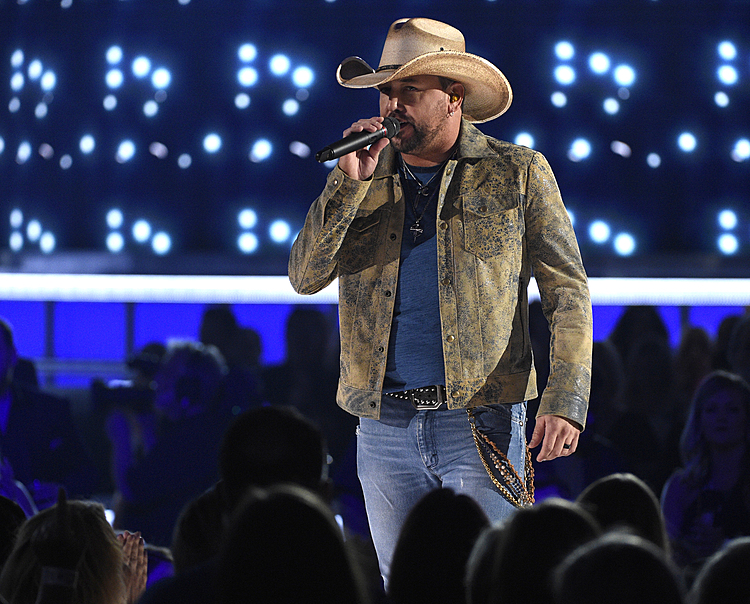Edmund White to receive honorary National Book Award
Winning an honorary National Book Award has Edmund White thinking about the more pleasurable moments of the writing life.
"Everybody always complains about it, but it occurred to me the other day that it is better than working and you meet lots of interesting people," says White, this year's recipient of the Medal for Distinguished Contribution to American Letters, an award previously given to Toni Morrison and Philip Roth, among others.
White, 79, is among the most influential gay writers of his time, known for works such as "A Boy's Own Story" and "The Beautiful Room is Empty" and for helping to create the market for openly gay literature. The National Book Foundation announced Thursday that director John Waters will present White with his medal during the Nov. 20 awards ceremony and benefit dinner. An honorary award also will be given to the head of the American Booksellers Association, Oren Teicher, and competitive prizes for fiction, nonfiction, translation, poetry and young people's literature will be announced.
White has had a prolific and versatile career, publishing novels, memoirs, criticism and biography, and winning a National Book Critics Circle award for his book on playwright Jean Genet. He is also a longtime activist who was on hand during the Stonewall riots of 1969 and later helped found the Gay Men's Health Crisis.
"Most writers don't set out to break barriers or trail blaze, but rather to share their unique perspectives and stories on the page," Lisa Lucas, executive director of the National Book Foundation, said in a statement. "It's only when you're able to look back at a body of work that one is able to see a career like Edmund White's for what it is: revolutionary and vital, making legible for scores of readers the people, moments and history that would come to define not only queer lives, but also the broader trajectory of American culture."
Interviewed recently in the living room of his apartment in Manhattan's Chelsea district, White is alternately generous, erudite and indiscrete. A professor emeritus at Princeton University, he remembered disagreeing with his colleague Toni Morrison over popular culture (she liked it, while he was "this weird mandarin who never had a television"). He spoke of attending a National Book Awards ceremony in the 1970s with a "horribly drunk" John Ashbery, being threatened with legal action by Gore Vidal (over a play he had written about Vidal and Oklahoma City bomber Timothy McVeigh) and becoming estranged from Susan Sontag, who took offense at a vain character in his historical novel "Caricole."
"People think I dislike her. I don't. I worshipped her, but she turned against me," White says of Sontag, who died in 2004. "When I was in my 20s I interviewed Aaron Copeland (for Time-Life). I said to myself, 'He is so admirable, he has no enemies. Everybody loves him.' And I thought, 'I would like to be like that.' But then it's almost inevitable that people will hate you, for one reason or another."
White has had health problems over the past decade, suffering a heart attack and two strokes. But he remains busy as ever, with the novel "A Saint in Texas" completed and a play (about a wife and mother who wants to become a man) in the works. In an email to The Associated Press, John Waters wrote that he had read "every book Edmund White has ever written."
"I love the later ones even more than the early work that made him famous," he added. "He's so smart, it's scary."
White also is active promoting books by younger writers, with Andrew Sean Greer and Garth Greenwell among those he names. He fondly, wearily notes that he is the frequent recipient of thousand-page manuscripts from emerging authors and duly blurbs dozens of books in a given year. "I am the blurb slut of all time," he says with a laugh.
The world has changed in remarkable and tragic ways since White was first published, long before the AIDS pandemic or the legalization of gay marriage. (White is married to fellow author Michael Carroll.) Openly gay novels were rare when he was coming of age and were still discouraged by publishers in the '60s and '70s. White was among those who helped establish them, especially after the critical and commercial success of the autobiographical novel "A Boy's Own Story," published in 1982.
"People were kind of ready for a gay book, I think," he said. "(In the 1960s) I wrote maybe five novels that I submitted but were never published or accepted. Later, editors would say to me, 'I really liked that book. I would have accepted it, but then people in the office would have known I was gay.'"











